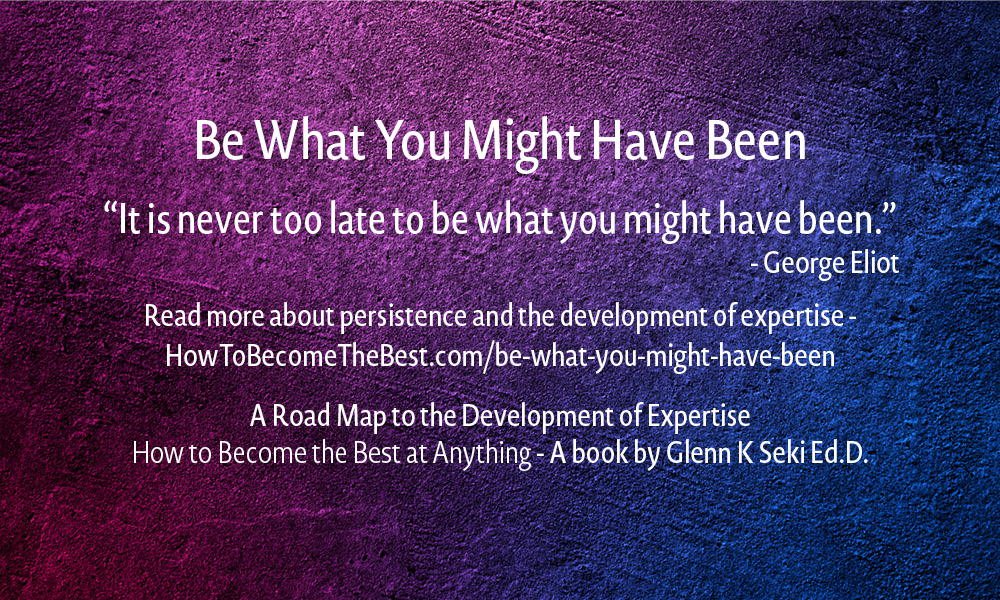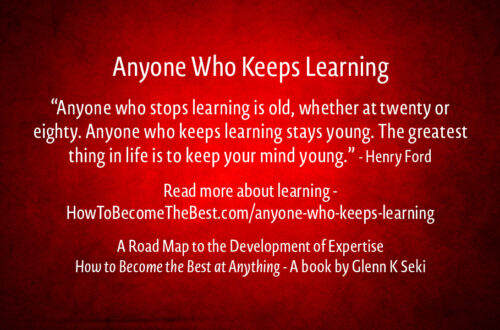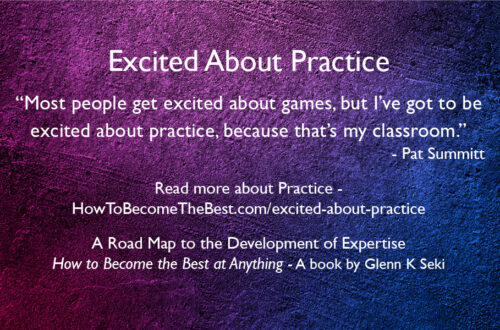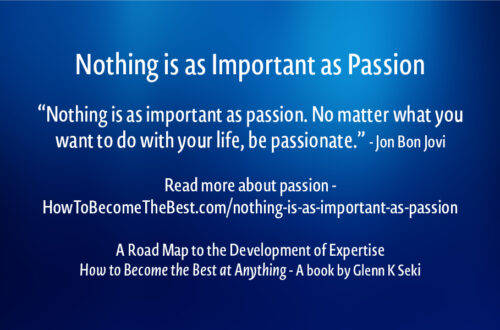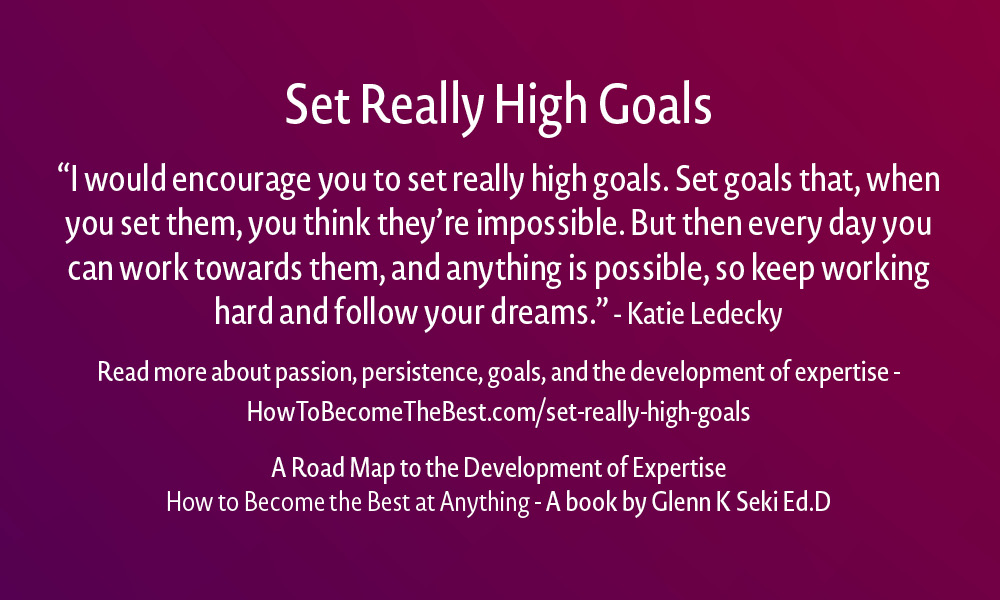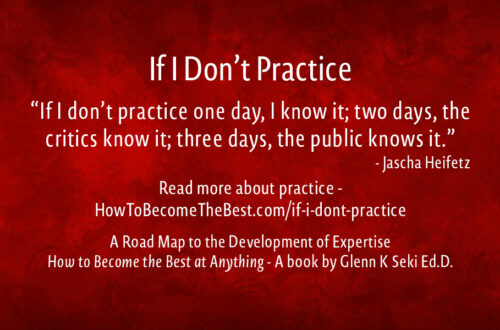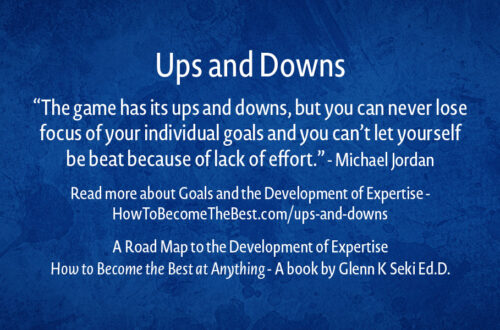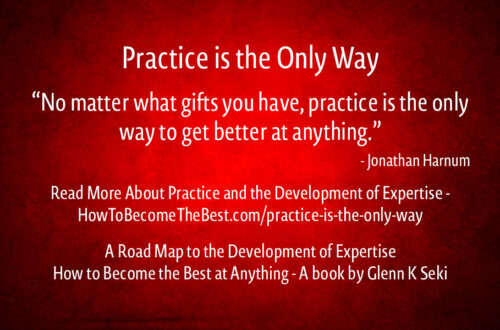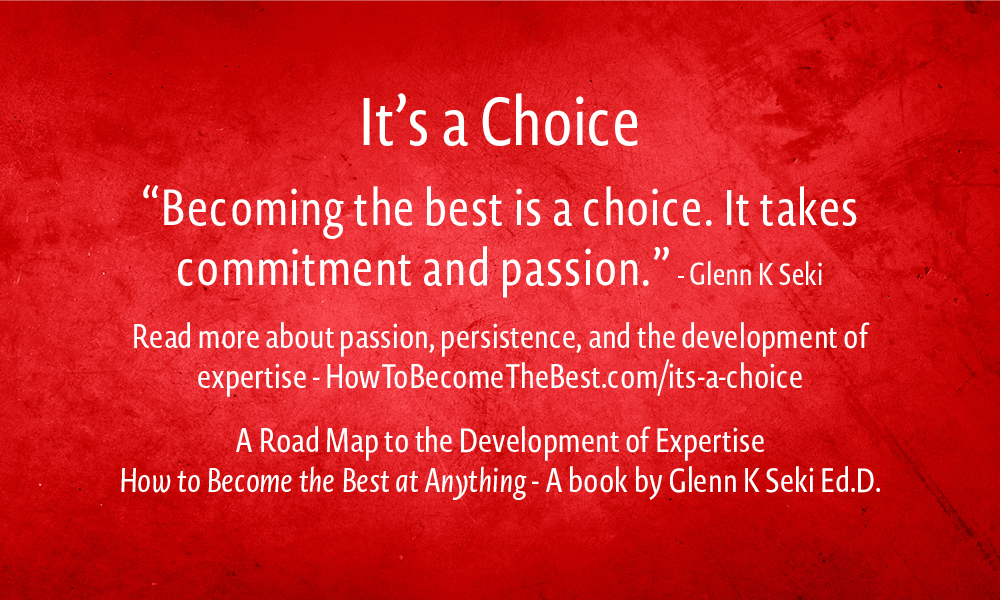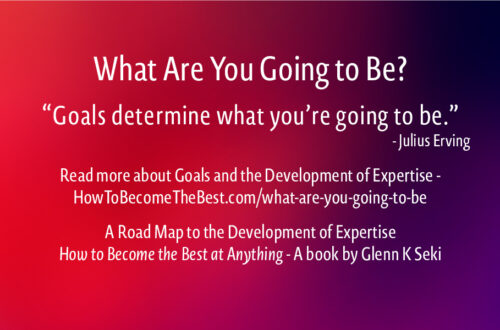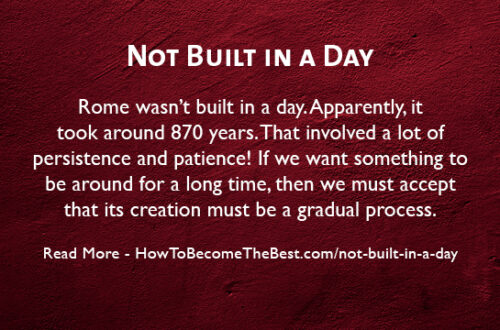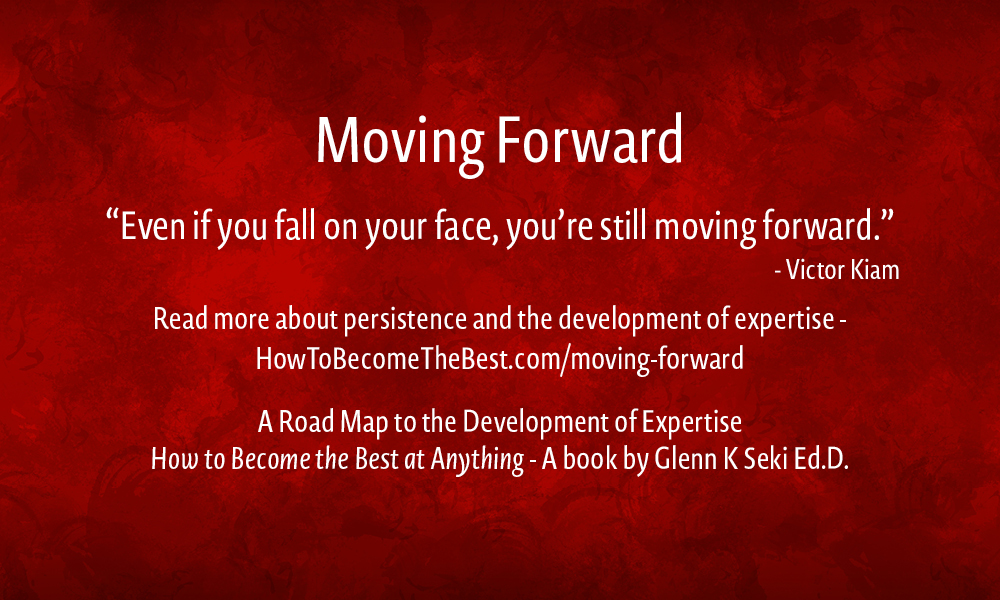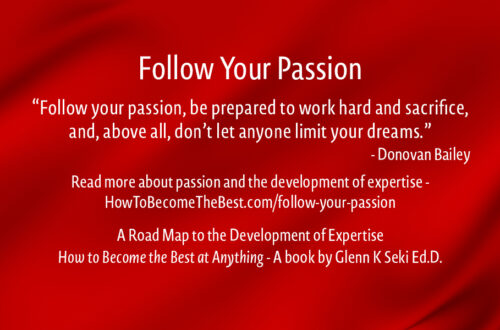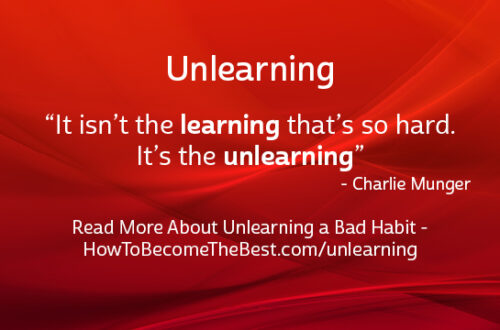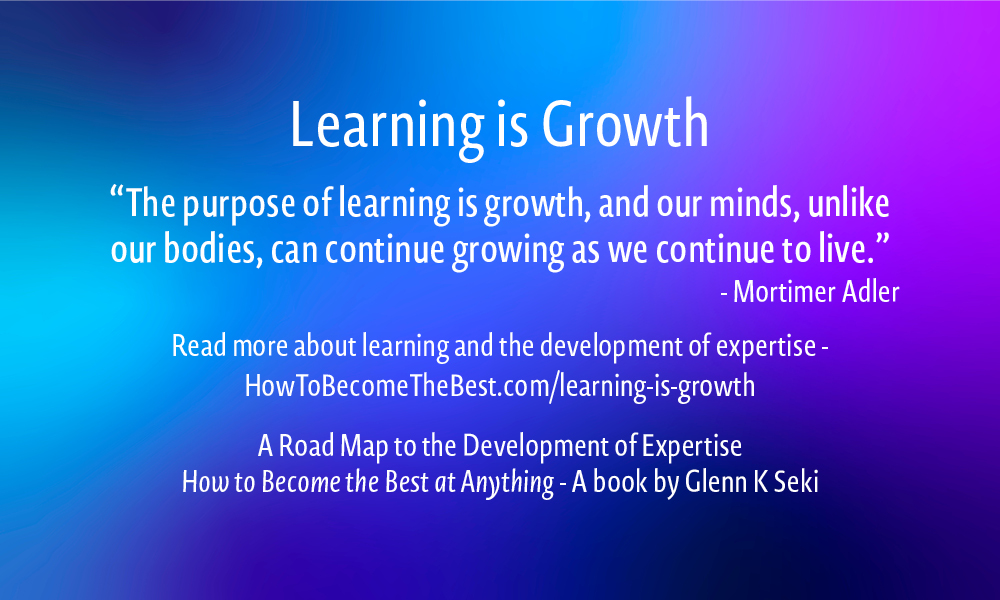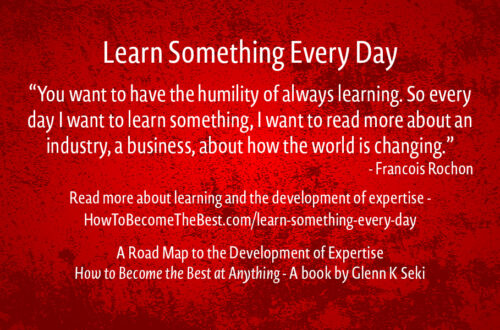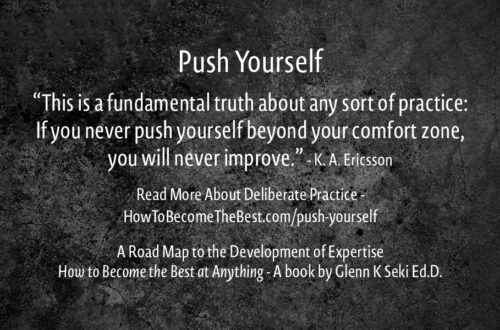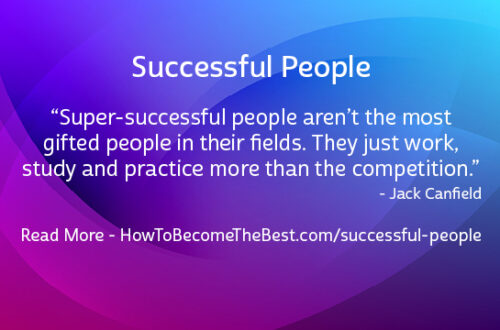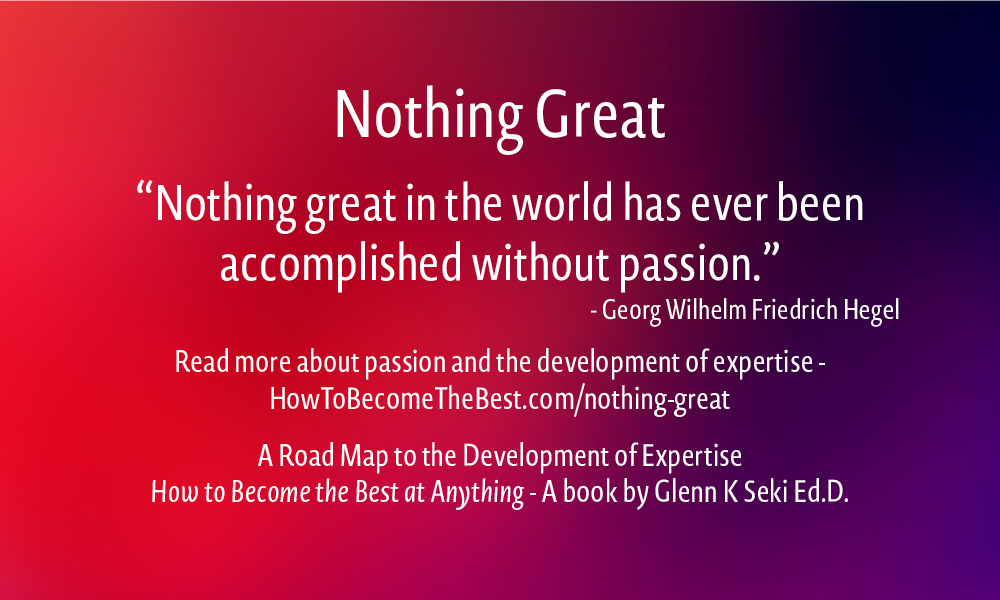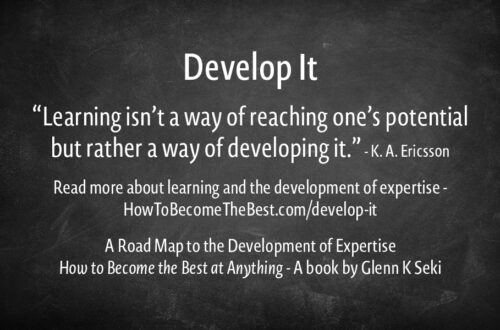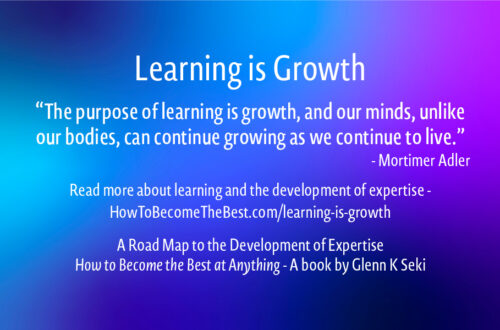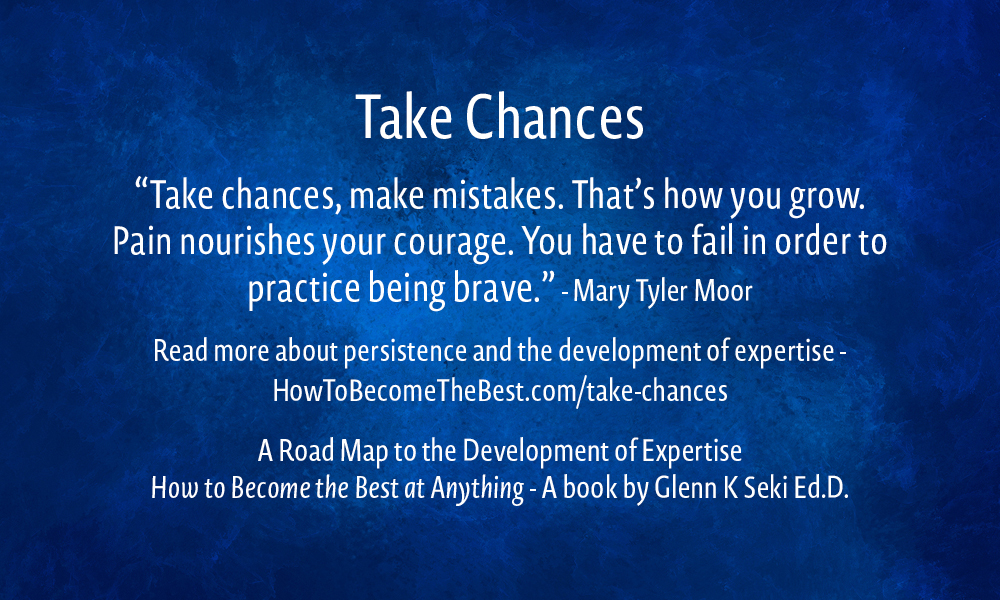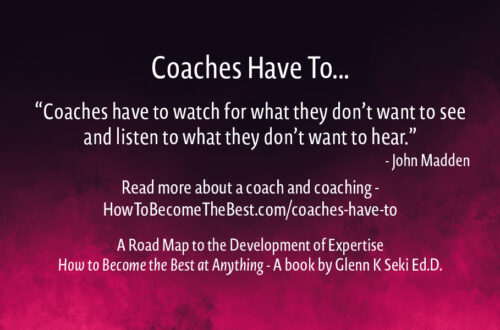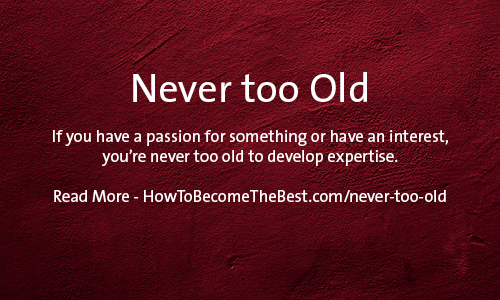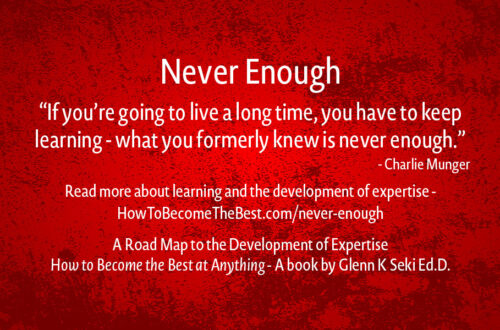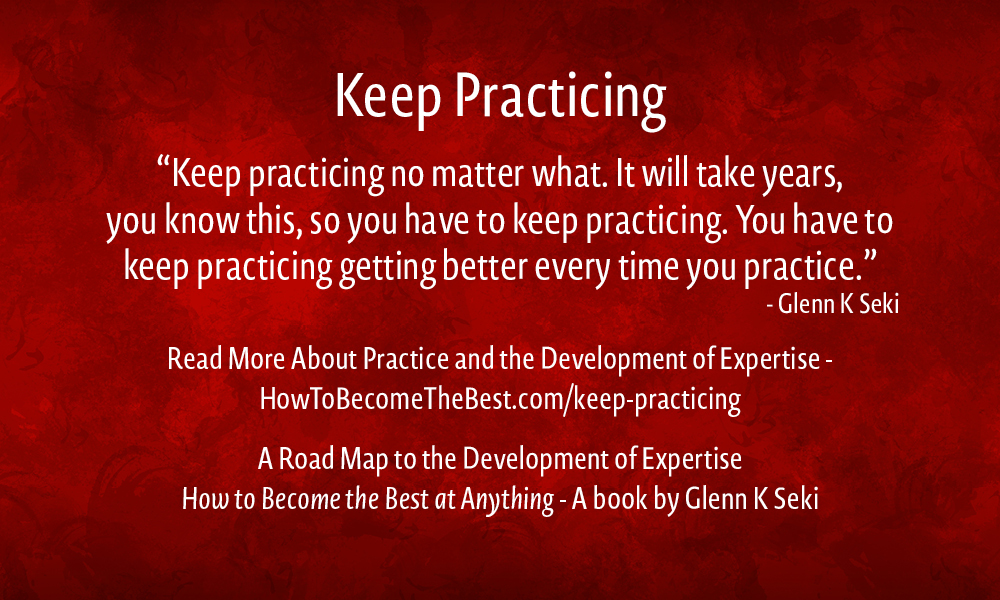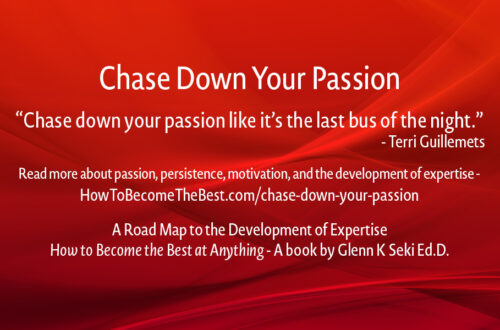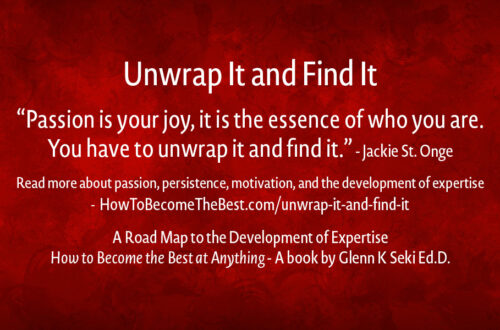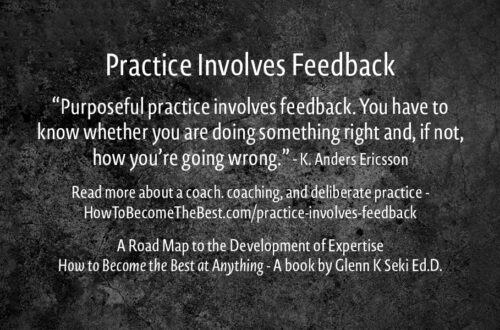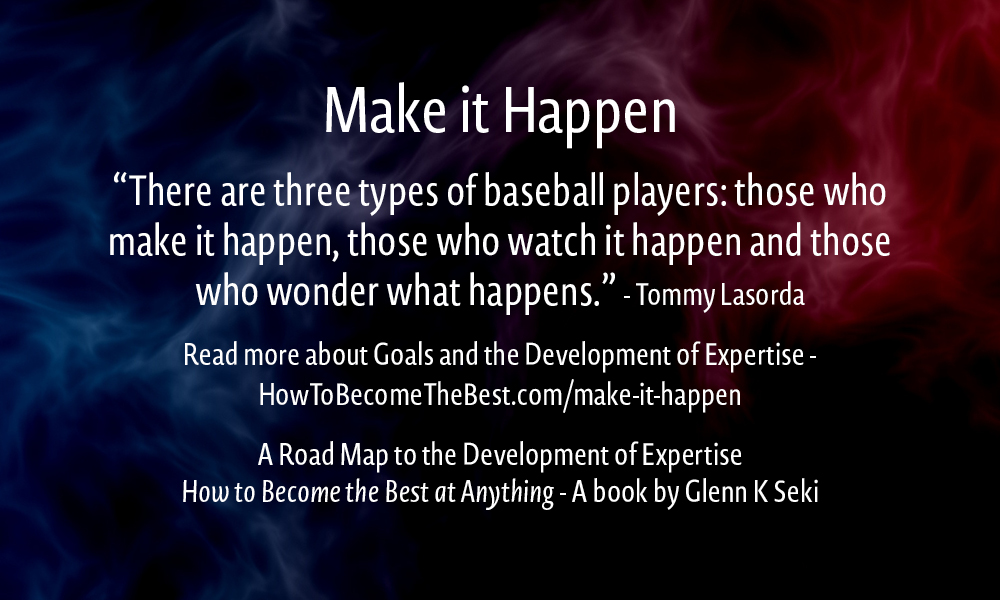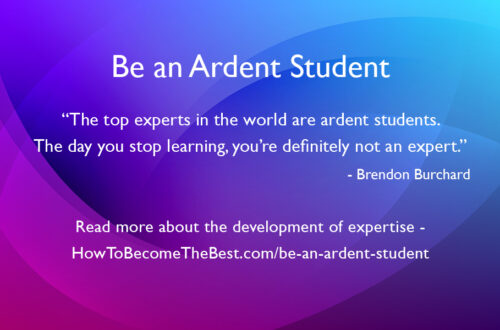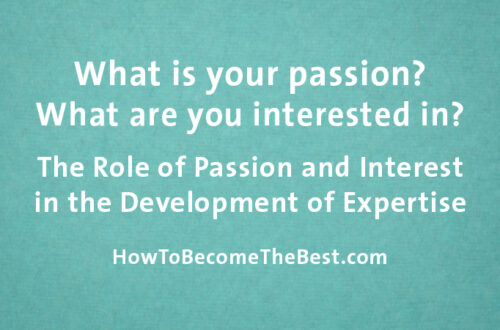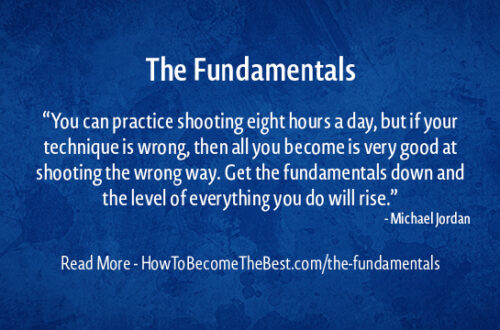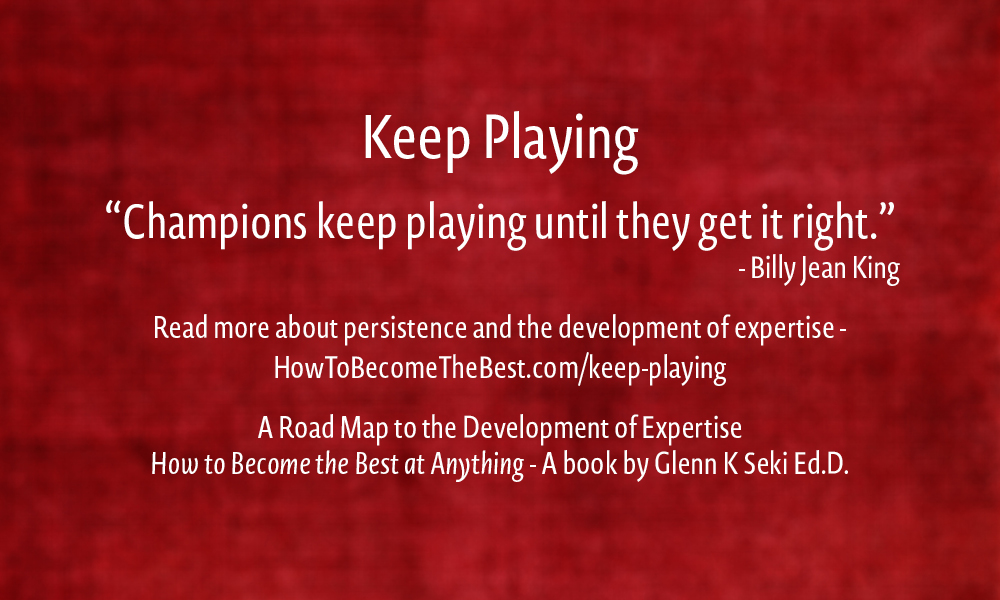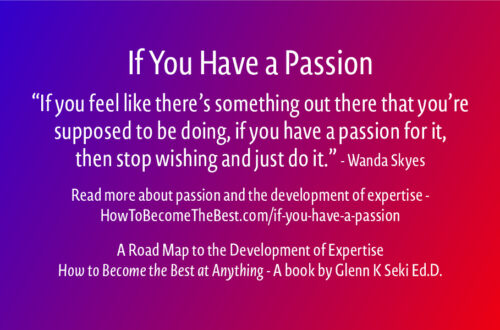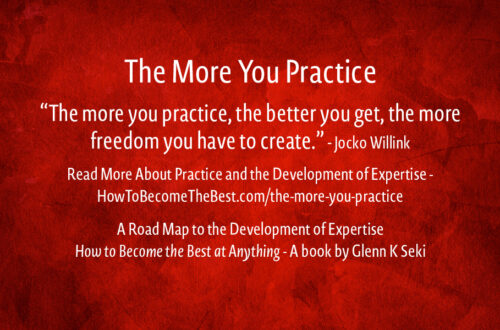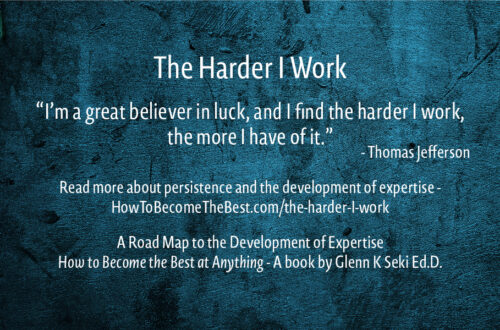“It is never too late to be what you might have been.” – George Eliot *** Persistence and Motivation An excerpt from How To Become The Best at Anything, Chapter 9, Persistence, Motivation, and More About Your Path “Keep practicing no matter what. It will take years, you know this, so you have to keep practicing. You have to keep practicing getting better every time you practice. This is a very hard thing to do. You will get tired, bored, and frustrated. It is hard to keep your focus while practicing. I heard a story about John Wooden (often considered one of the greatest college basketball coaches, ever) while I…
-
-
Set Really High Goals
“I would encourage you to set really high goals. Set goals that, when you set them, you think they’re impossible. But then every day you can work towards them, and anything is possible, so keep working hard and follow your dreams.” – Katie Ledecky *** Passion, Persistence, Goals, and the Development of Expertise *** An excerpt from How To Become The Best at Anything, Chapter 1, Passion and Interest “What is your passion? What are you passionate about? Are you passionate about a sport, say basketball, or surfing? Tennis anyone? How about art, or music. Perhaps you’re zeroed in on an academic field such as biology, or economics. Maybe you…
-
It’s a Choice
“Becoming the best is a choice. It takes commitment and passion.” – Glenn K Seki *** Passion, Persistence, and the Development of Expertise An excerpt from How To Become The Best at Anything, Chapter 1, Passion and Interest “What is your passion? What are you passionate about? Are you passionate about a sport, say basketball, or surfing? Tennis anyone? How about art, or music. Perhaps you’re zeroed in on an academic field such as biology, or economics. Maybe you have a passion for exploring, with an eye on the Himalayas. Don’t have a passion, then what are you interested in? Interest and achievement go hand in hand. It is easier…
-
Moving Forward
“Even if you fall on your face, you’re still moving forward.” – Victor Kiam *** Persistence and Motivation An excerpt from How To Become The Best at Anything, Chapter 9, Persistence, Motivation, and More About Your Path “Keep practicing no matter what. It will take years, you know this, so you have to keep practicing. You have to keep practicing getting better every time you practice. This is a very hard thing to do. You will get tired, bored, and frustrated. It is hard to keep your focus while practicing. I heard a story about John Wooden (often considered one of the greatest college basketball coaches, ever) while I was…
-
Learning is Growth
“The purpose of learning is growth, and our minds, unlike our bodies, can continue growing as we continue to live.” – Mortimer Adler *** How you learn something… An excerpt from How To Become The Best at Anything, Chapter 8, Deliberate Practice and Learning Learning “When you are trying to learn something new or you are teaching someone something new, it can be a very daunting task. It is difficult because learning something new is not easy, but it can be made easier if you understand how learning works. Learning can be divided into four basic parts: concepts (definitions and examples), processes (how it works sequences), principles (cause and effect…
-
Nothing Great
“Nothing great in the world has ever been accomplished without passion.” – Georg Wilhelm Friedrich Hegel *** An excerpt from How To Become The Best at Anything, Chapter 1, Passion and Interest “What is your passion? What are you passionate about? Are you passionate about a sport, say basketball, or surfing? Tennis anyone? How about art, or music. Perhaps you’re zeroed in on an academic field such as biology, or economics. Maybe you have a passion for exploring, with an eye on the Himalayas. Don’t have a passion, then what are you interested in? Interest and achievement go hand in hand. It is easier to achieve in a domain if…
-
Take Chances
“Take chances, make mistakes. That’s how you grow. Pain nourishes your courage. You have to fail in order to practice being brave.” – Mary Tyler Moor *** Persistence and Motivation An excerpt from How To Become The Best at Anything, Chapter 9, Persistence, Motivation, and More About Your Path “Keep practicing no matter what. It will take years, you know this, so you have to keep practicing. You have to keep practicing getting better every time you practice. This is a very hard thing to do. You will get tired, bored, and frustrated. It is hard to keep your focus while practicing. I heard a story about John Wooden (often…
-
Keep Practicing
“Keep practicing no matter what. It will take years, you know this, so you have to keep practicing. You have to keep practicing getting better every time you practice.” – Glenn K Seki *** An excerpt from How To Become The Best at Anything, Chapter 8, Deliberate Practice and Learning “To become the best takes practice, lots and lots of practice. I have mentioned the 10,000-hour rule. It takes about 10,000 hours of practice to get really good at something and not just any type of practice, but deliberate practice. Deliberate practice is practicing to get better. The classic example is a man who has gone golfing almost every weekend…
-
Make it Happen
“There are three types of baseball players: those who make it happen, those who watch it happen and those who wonder what happens.” – Tommy Lasorda *** An excerpt from How To Become The Best at Anything, Chapter 6, A Goal and a Plan “You need to have a specific ultimate goal. Let’s say you want to win an Olympic gold medal in swimming in the 200-meter freestyle. You have a specific ultimate goal, which is a good start because you know your final destination. When I was in graduate school in biology at UCLA one of my classes was a graduate seminar consisting of three students and two professors…
-
Keep Playing
“Champions keep playing until they get it right.” – Billy Jean King *** Persistence and Motivation An excerpt from How To Become The Best at Anything, Chapter 9, Persistence, Motivation, and More About Your Path “Keep practicing no matter what. It will take years, you know this, so you have to keep practicing. You have to keep practicing getting better every time you practice. This is a very hard thing to do. You will get tired, bored, and frustrated. It is hard to keep your focus while practicing. I heard a story about John Wooden (often considered one of the greatest college basketball coaches, ever) while I was a student…
